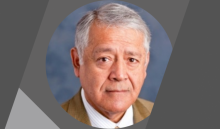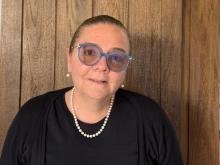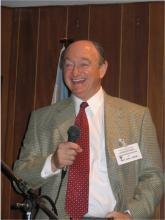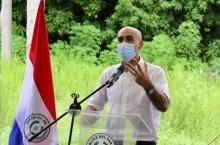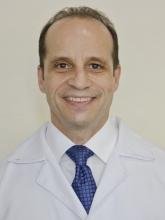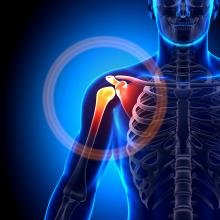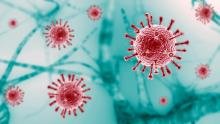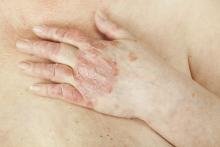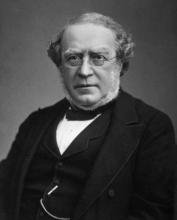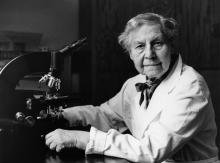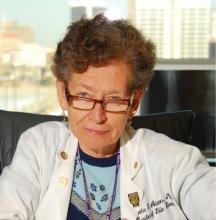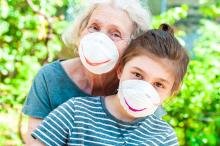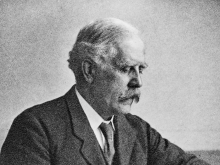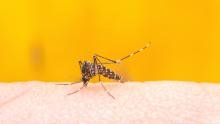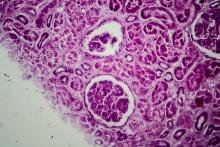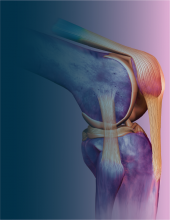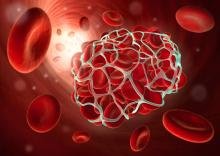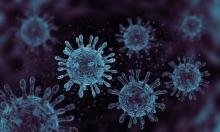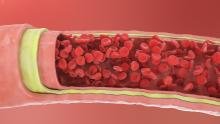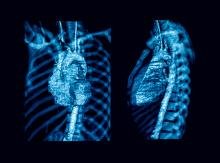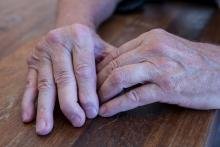Return of the Barbarians
Alberto Palacios MD
I once wrote that “all chronic condition entails an intimacy with death”. In this sense and as a guiding thread to my story, we are obliged to understand that any sick person who comes to us with joint pain, vascular lesions or organic involvement is suffering the uncertainty of seeing his or her existence thrown into the abyss of disability or ineluctable loss”.
As specialists in somatic pain and connective tissue integrity, we must pause to listen this lament and give way for its elaboration in order to reconcile it with the pharmacological treatment and offer a dignified and hopeful solution to the drama we are dealing with. May it always be so.
The day dawned mild, and I hastened to open the blinds. It is a mischievous prank nurses often repeat to wake up Eamon, a grandfather we love and who is convalescing from his latest surgery. In Limerick, a day of scudding clouds is a joy to be shared, especially for a dying man.
Since his first hospitalization we know that his liver cancer is not curable. It has spread to both lobes, metastasized to the lungs and bone, to the extent that this surgery was only to decompress the bile ducts. An insatiable drinker, Eamon grew up in the shipyards of the estuary where whiskey and beer were obligatory currency for socializing and curbing hunger.
No family reproached him, as long as the workers remained loyal, avoided prostitutes, did not miss mass and brought their meager paychecks on time every Friday. Hearing them snore was the music to which they slept and awoke on Sundays.
The whole town knew that dockers -miners and chimney sweeps- died young from lung, testicular or liver cancer. Before the age of forty, Limerick’s wives had bore children, launched offspring into the world and been widowed, poverty their only constant. Only the spinsters were left to care for the widows and old abandoned elders who opted in another life for less demanding work. One of them was Eamon, a survivor of alcoholic hepatitis, emphysema, and heart attacks, by dint of having good genes, as he was happy to boast. His wife Mary, instead, died of tuberculosis during the potato famine, leaving two daughters and a son who migrated to England as soon as they were able to leave school.
– Today it’s a great day, Eamon- I said after pouring him a glass of water and waiting for him to wake up.
– Mmmm – he grunted. – I have no memory of their faces anymore, O’Brien. They left this paradise too long ago.
His cynical tone makes me smile, although I silently fear that this visit might be unwelcome to his children, whom I tracked down just a few days ago to tell them of their father’s diagnosis and imminent death. A lover whose name remains anonymous under his pillow is the only one who has sent flowers these past two weeks. Thankfully, these are paper flowers, so they don’t wilt and brighten up the surroundings a bit. Yesterday I asked Timothy and Fiona to clean the room carefully while we bathed the patient, at least to make it less smelly and more presentable for his family.
– May I shave you, Eamon? – I ask, already with the razor smeared with shaving cream in hand.
– But don’t give me that lotion you guys use that burns for hours. I prefer ashes to that suffocating perfume.
– Stop, stop – I chide him affectionately. – On Sunday you said that Mabel, the obstetrical nurse, winked at you.
– She is cross-eyed, you fool! – he says and breaks out laughing.
Breakfast arrives warm and Eamon eats reluctantly, with that disgust that no patient can hide at this point. But he keeps a hint of enthusiasm in his voice, glancing at the wall clock from time to time. At eleven o’clock, punctually, visitors are admitted. I leave him alone before receiving his three children, aware that he needs a moment to meditate, weigh the moment and save the tears he has not shed.
The first one to come is Selma, the youngest, as her siblings park the car. She is an energetic, plump, rosy-cheeked young woman. Her blue eyes shine brighter than the day. She is fearful of recognizing this agonized man that she hasn’t seen in two decades. She stands in the doorway, hesitant, as if waiting for an order from above before approaching the sick man. Behind her, I whisper: - Step in, he doesn’t bite.
When she dares to hug her father, Ellen and Jack, the two eldest, who are already grey-haired, enter the room. Thinner than their sister, they share their father’s Celtic features and a clear gaze above the dark circles, reminiscent of the sea bound. The smell of tobacco is evident on Jack as he passes me, as if he has just extinguished his cigarette. I hope this encounter will help him to rethink his vice – I ponder, compelled by my pretensions as a health educator.
Selma burst into tears as she gets up from the bed; she was clearly not prepared to see her father on his deathbed. As Ellen tries to comfort her, Jack shake hands with Eamon and asks his permission to sit next to him. Eamon tries to pull back and give him some space, but his weak body does not help, thus I have to go in, apologizing, to assist him.
– How bad is it? – Asks the eldest sister. Suddenly, I discover her wrinkles, her wiry face, her air of tragedy.
– Sorry? – I say, a little lost, somewhat surprised that she is addressing me.
Following Eamon’s nod, I try to describe them in lay terms the state and prognosis of his father. I avoid at every time going into unpleasant details or slipping into a melancholic story, that I know is irritating for the relatives.
The three of them listen to me attentively, while turning to meet their father's gaze when I talk about metastasis, complications, or the need for the last two surgeries. My intervention last barely seven minutes, but to me it feels like ages in the midst of this tense atmosphere.
– Thank you, Félix – says Eamon, satisfied with my version and respectful tone. – Now let me spend some time with these guys. I want to know what I have foolishly missed of their projects and adventures by letting them fly. I just want to regain the pride I feel for each one of them and know if in this short space that God has given me, I can receive their compassion and love. I will leave peacefully, I assure you.
Closing the door behind me I see Kathy and Fiona, my fellow nurses, the cleaner Lizzy and the janitor, Ralph – arms down and in street clothes – who used to walk his dying friend around the gardens on rainless afternoons. They all press me with sad eyes, anxious to know if old Eamon, who has taught us so much about laughter and the value of life, has finally reconciled with his own.
P.S. There is no doctor who has not seen a patient die. No ordinary death. Nor inconsequential death. Every death, no matter how much clinical disguise is imposed on it, evokes one's own fragility.
That is why it is so hard to keep precepts, recommend solutions, perform assisted suicide, or implore mercy through penance. Death is the most forceful and genuine premise of life, although it is seen as inadmissible, ominous, venerable.
In a more practical sense, proximity to death is a framework for reflection and opportunities to understand and alleviate human suffering. The extremes of life edit out what is the truest along with what is most important in each person. Some years ago, Dr. Bill Nelems, a surgical oncologist at the University of British Columbia in Vancouver, noted something as fascinating as it was useful for the dying. Through numerous interviews guided by a psychotherapeutic approach, he discovered that dying cancer patients have five fundamental concerns:
- Their nutrition. From which aliments can they eat given their fatal disease, to the tastes, smells, and nutritional values they should take advantage of before the time of their passing.
- Their physical appearance. What deformities will palliative surgeries, chemotherapy, or radiation cause? How will they be viewed by their loved ones? Most agree that their body image is linked with their suffering.
- Their legacy. Although financial and family concerns take large part of the thoughts of the terminally ill patients, it is above all the emotional legacy that causes their anxiety.
- Their sexual life. Surprising as it may seen, many patients weakened by cancer seek to or recall with sadness their erotic vitality. Life without sensual affection is dulled and the transcendental value of loving devotion is never lost,
- Pharmacological reactions. Of course, more than death itself, what we suffer from death is the suffering that precedes it. To cease to exist is commonplace, but the displeasure of vomiting, feeling somatic pain, becoming emaciated or expelling toxic fluids is intolerable in the imaginary registry, which dominates our lives from beginning to end.
With these elements, there is a lot of work to be done. More than the complicity or compassion proposed by thanatology, terminally ill wants life or what is left of it, as simple and plain as when mothers fed us, tucked us in, and taught us how to love.
Footnote. Title alludes to the masterpiece “Waiting for the barbarians” published in 1982 by the Nobel Prize in Literature John M. Coetzee, and especially the beautiful Academy Award-winning (Best Foreign Film, 2004) “Les invasions barbares” by Denys Arcand (Canada, 2002).






















